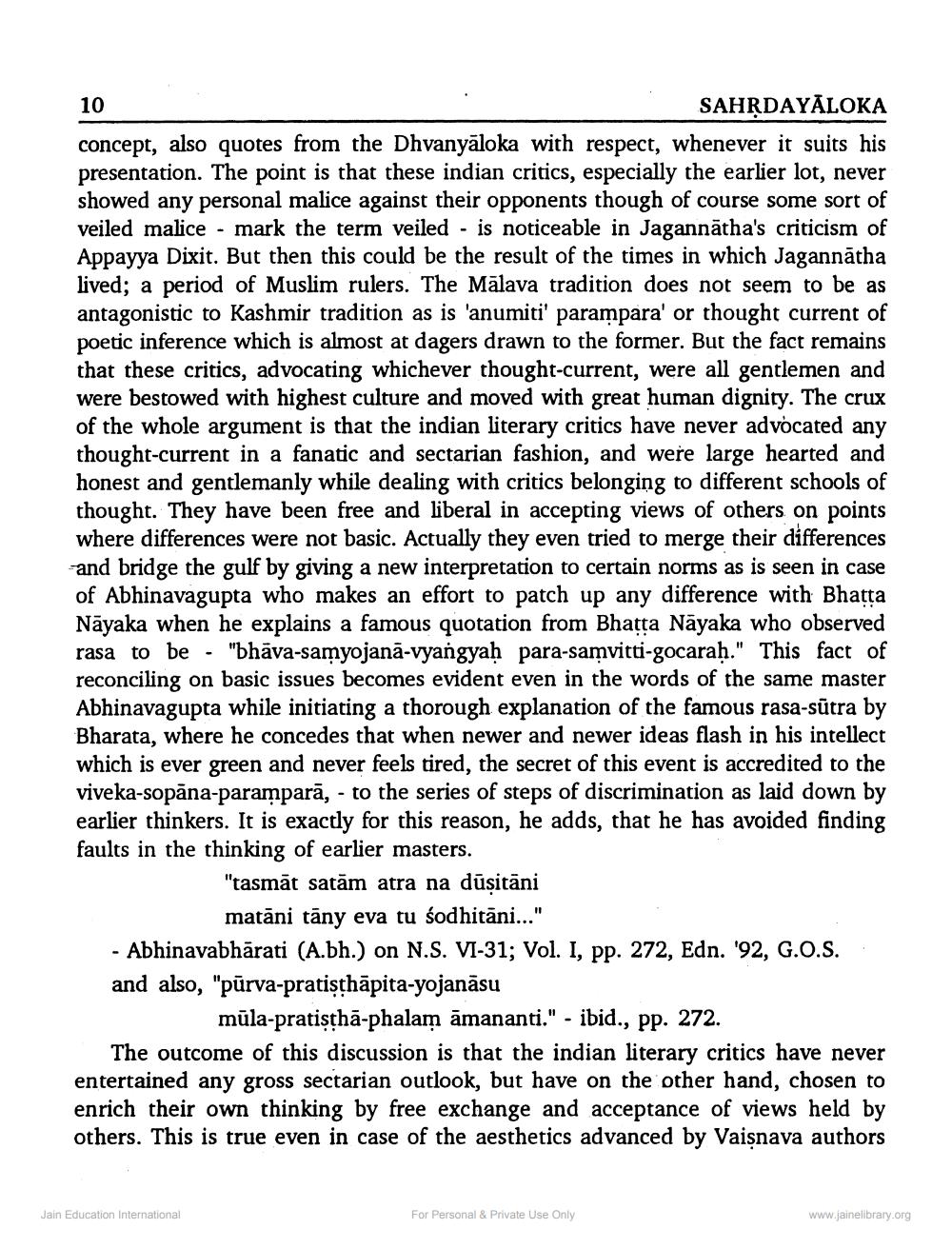________________
10
SAHRDAYĀLOKA
concept, also quotes from the Dhvanyaloka with respect, whenever it suits his presentation. The point is that these indian critics, especially the earlier lot, never showed any personal malice against their opponents though of course some sort of veiled malice - mark the term veiled - is noticeable in Jagannātha's criticism of Appayya Dixit. But then this could be the result of the times in which Jagannātha lived; a period of Muslim rulers. The Malava tradition does not seem to be as antagonistic to Kashmir tradition as is 'anumiti' parampara' or thought current of poetic inference which is almost at dagers drawn to the former. But the fact remains that these critics, advocating whichever thought-current, were all gentlemen and were bestowed with highest culture and moved with great human dignity. The crux of the whole argument is that the indian literary critics have never advocated any thought-current in a fanatic and sectarian fashion, and were large hearted and honest and gentlemanly while dealing with critics belonging to different schools of thought. They have been free and liberal in accepting views of others on points where differences were not basic. Actually they even tried to merge their differences and bridge the gulf by giving a new interpretation to certain norms as is seen in case of Abhinavagupta who makes an effort to patch up any difference with Bhatta Nayaka when he explains a famous quotation from Bhatta Nāyaka who observed rasa to be · "bhāva-samyojanā-vyangyah para-samvitti-gocarah." This fact of reconciling on basic issues becomes evident even in the words of the same master Abhinavagupta while initiating a thorough explanation of the famous rasa-sūtra by Bharata, where he concedes that when newer and newer ideas flash in his intellect which is ever green and never feels tired, the secret of this event is accredited to the viveka-sopāna-paramparā, - to the series of steps of discrimination as laid down by
hinkers. It is exactly for this reason, he adds, that he has avoided finding faults in the thinking of earlier masters.
"tasmāt satām atra na dūsitāni
matāni tāny eva tu sodhitāni..." - Abhinavabhārati (A.bh.) on N.S. VI-31; Vol. I, pp. 272, Edn. '92, G.O.S. and also, "pūrva-pratisthāpita-yojanāsu
mūla-pratisthā-phalam āmananti." - ibid., pp. 272. The outcome of this discussion is that the indian literary critics have never entertained any gross sectarian outlook, but have on the other hand, chosen to enrich their own thinking by free exchange and acceptance of views held by others. This is true even in case of the aesthetics advanced by Vaisnava authors
Jain Education International
For Personal & Private Use Only
www.jainelibrary.org




